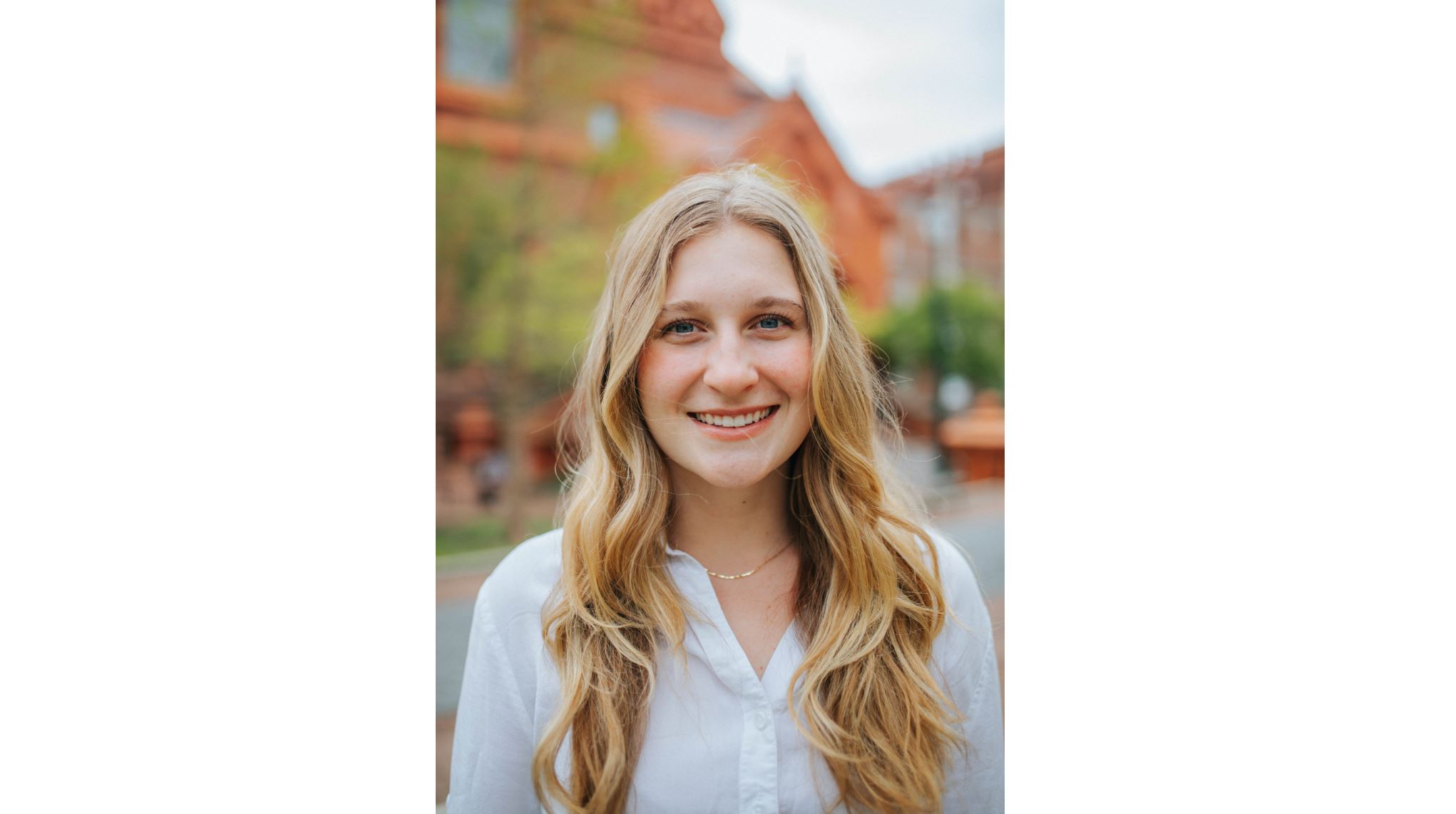
Maya Hardy ('25), a Psychology major, conducted research on the relationship between music and social connection with the mentorship of Dr. Katherine Cotter (Positive Psychology Center). This research was supported by the College Alumni Society Undergraduate Research Grant.
As a psychology major who has always had an interest in well-being, and a musical performer in a student group, this project was a way for me to combine two of my biggest passions. As an experienced vocalist, having sung in choir, a cappella, and theatre for the better part of a decade, I’ve seen the way music making can connect people. As such, this topic felt like an intuitive place to deepen my research abilities and expand my knowledge about how well-being can be enhanced. It’s important to me because I believe that having data to support the positive relationship between music making and social connectedness will help others realize the power of music making in their own lives. Though my initial data collection was unable to provide robust conclusions around the impact of music making on social connection, comments left by participants revealed themes of belonging that I am excited to explore further.
Through this research experience, I had the opportunity to deepen my relationship with Dr. Katherine Cotter, a mentor with whom I previously worked. I have been a research assistant with the Humanities and Human Flourishing project since the summer after my freshman year. All of the projects I’ve worked on have been with Katherine and I am so grateful for the amount of time and energy she puts into her students. Katherine was with me through every step of the research project from grant writing, to submitting materials to the Institutional Review Board (IRB), to rolling out data collection and then creating the poster. Her guidance has been invaluable and has expanded my research abilities in ways I didn’t even expect. With all of the connections I made, from Katherine to the broader Penn community, the most rewarding element was being able to learn new things from each individual.
One of the most challenging elements of my experience was data collection. My project had a very specific population and while I was able to reach most of them, getting people to participate over the course of three weeks was hard. I had multiple people stop participating in the middle of the three-week daily diary data collection period and others who only completed a survey at the beginning and end of the experience. While it was difficult to gather more participants by the end of the spring semester, I continued to collect further data in the fall to ensure that I have a full sample size. As I worked through these challenges, I experienced frustration and occasional feelings of inadequacy; however, with the support of my mentor and those around me, I learned that challenges like this are simply part of the research process and there are many ways to work through them. This lesson on how to work through ambiguity and disappointment in the research space was one of the biggest growth areas for me throughout the course of this project.
Interested in reading more first-hand accounts about undergraduate research? Check out the other experiences featured on our Student News Page and Social Media!